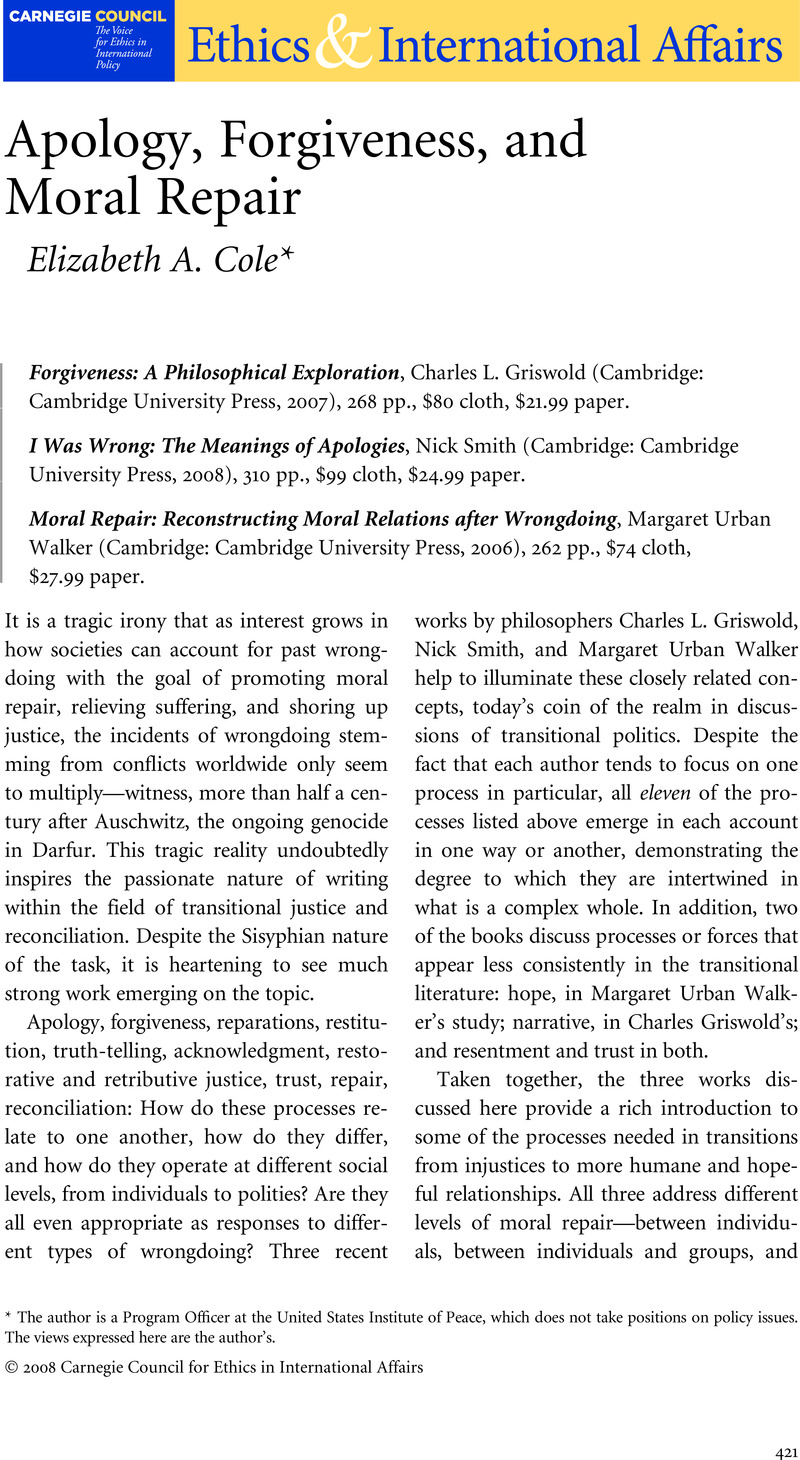Article contents
Apology, Forgiveness, and Moral Repair
Published online by Cambridge University Press: 25 March 2011
Abstract

- Type
- Review Essay
- Information
- Copyright
- Copyright © Carnegie Council for Ethics in International Affairs 2008
References
NOTES
1 For studies that attempt to measure the impact of “reconciliatory” processes, see James Gibson's study of the effect of the Truth and Reconciliation Commission in South Africa, Overcoming Apartheid: Can Truth Reconcile a Divided Nation? (New York: Russell Sage Foundation, 2004); and William Long's and Peter Brecke's longitudinal, comparative study of the return, or not, to violence, War and Reconciliation: Reason and Emotion in Conflict Resolution (Cambridge, Mass.: MIT Press, 2003).
2 See, e.g., Charles Taylor, “The Politics of Recognition,” in Amy Gutmann, ed., Multiculturalism: Examining the Politics of Recognition (Princeton, N.J.: Princeton University Press, 1992).
3 One of the few perpetrators to confess to wrongdoing, express remorse, and apologize at the International Criminal Tribunal for the former Yugoslavia was a woman, Biljana Plavšić, now serving a prison sentence in Sweden. The gender aspect of this unusual case is one of several that should attract more attention, especially given how very few examples there are of apology by contributors to widespread human rights violations and other forms of collective violence.
4 Jeff K. Olick, The Politics of Regret: On Collective Memory and Moral Responsibility (New York: Routledge, 2007), p. 148.
- 3
- Cited by




